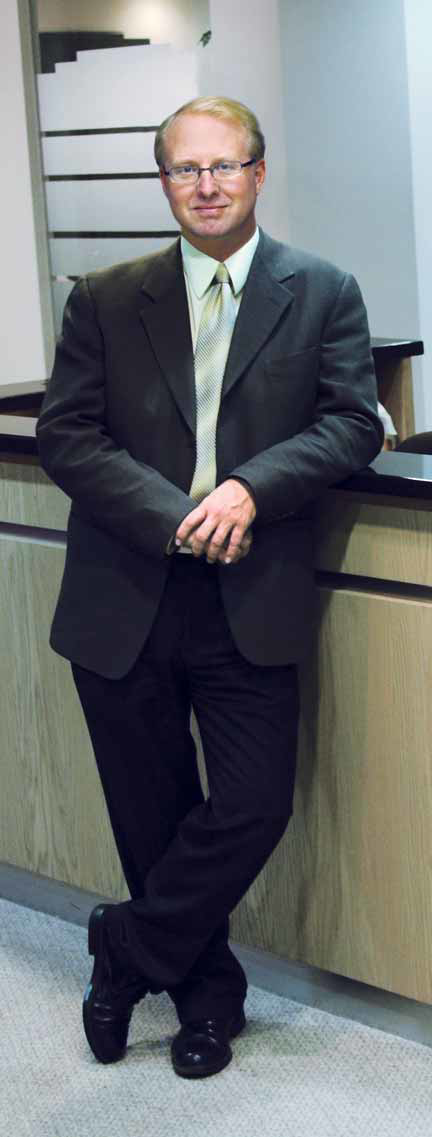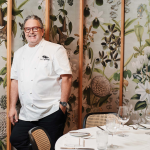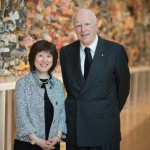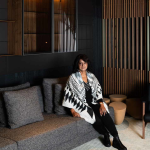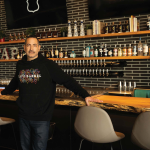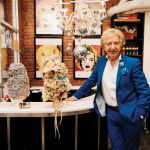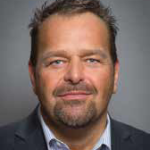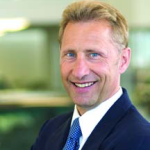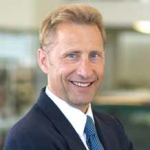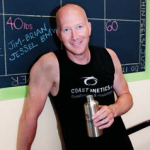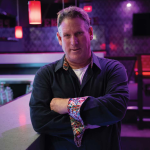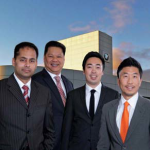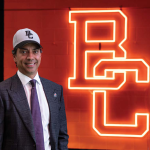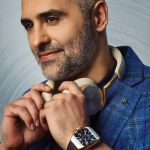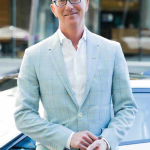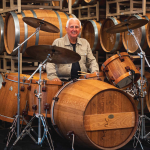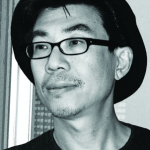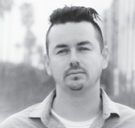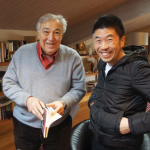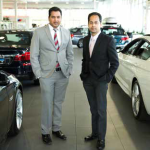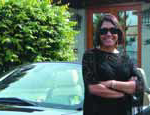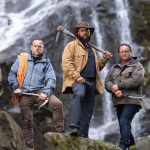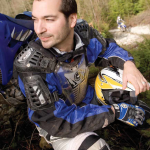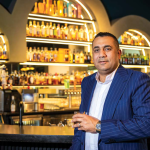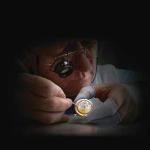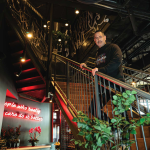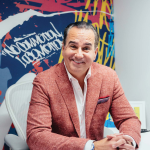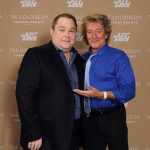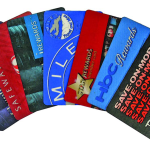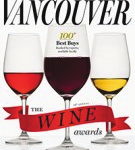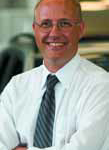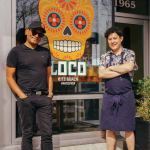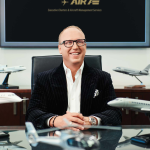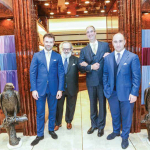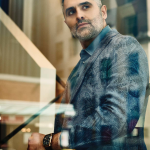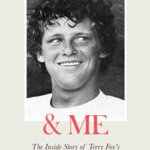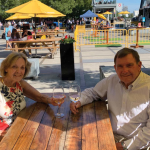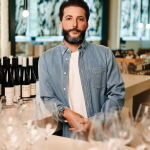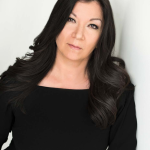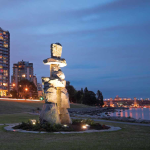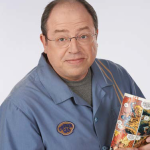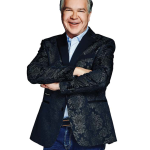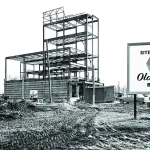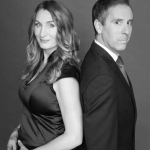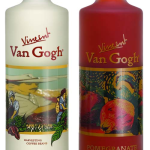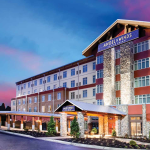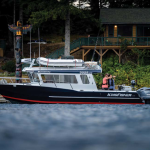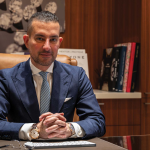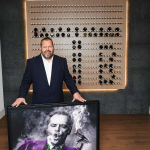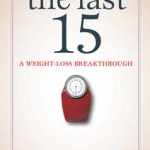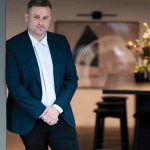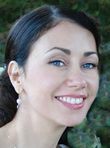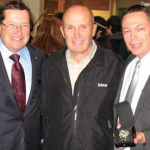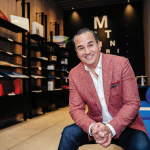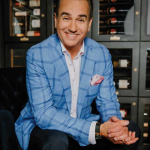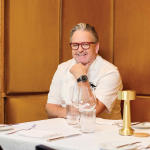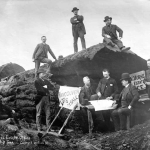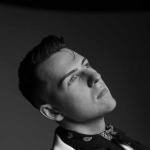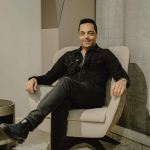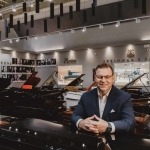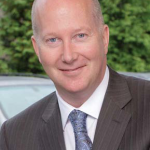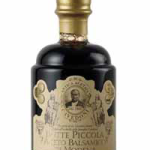Ask anybody who has ever been to Vancouver and chances are he or she will tell you that it’s one of his or her favourite cities in the world. If they don’t live here already, they’ll tell you they’d like to. Vancouver has seen a lot of growth over the last 30 years; the population has grown and many talented entrepreneurs have chosen to come here to start their businesses. Brian Jessel Magazine decided to ask six successful business people to describe how they achieved their success and offer advice to those who are trying to grow their own businesses in vibrant Vancouver.


BRIAN JESSEL
Brian Jessel’s 20-year career with BMW is a classic success story of hard work, loyalty, team building and innovative thinking. He purchased a franchise in Abbotsford in 1986, and within one year he doubled the previous owner’s best year in sales. Today, having outgrown previous facilities in Langley and Coquitlam, Brian Jessel BMW is housed in a custom-built, customer-friendly facility at Boundary and Lougheed in Vancouver, and is celebrating its fifth year as the number one BMW retailer in Canada.

Jessel attributes his success today to his team of 130-plus people, some of whom have been with him since 1986. “Having the patience to stay with the brand and growing with the brand is how we actually did it, but I would attribute my success to the staff we’ve assembled over the years,” said Brian Jessel. Jessel has the following advice for growing a business in Vancouver: “Be prepared to work hard, make sure you have enough capital to get you through the difficult periods, don’t over-expand and work on your core values.” Core values, he explained, include customer relations, marketing and standing out from the crowd. He adds,
“I found that you can’t overservice the customer.”. Customer service is the driving concept behind the new facility on Boundary Road. Brian Jessel BMW only has 10 salespeople, yet it does as much business as a dealership with twice that many. According to Jessel, this is not only because he hires the best sales people in the country, but also because he is always looking for new and better ways to serve his clients. For example, he provides a valet service for picking up and delivering vehicles to their homes or offices. The West Coast has a reputation for its laid-back attitudes, but Jessel says that his clients appreciate his no-nonsense approach to business: “We respect our clients’ time. Some of them prefer to buy their car at their office; they just
don’t have time to come to a car dealership so we go to them”. In this instance Jessel took his cue how Japanese auto sales teams work. “You know, it’s not a secret weapon,” he observes. “The Japanese always do business like that. That’s how cars are sold in Japan—people always go to your house and do the business there.” Jessel says that one of his strengths is his ability to spot good ideas and implement them in a way that works locally. Another secret to his success in Vancouver, according to Jessel, is a good understanding of the multicultural nature of this market and how it evolves over time.
Being able to communicate with and adapt to the needs of customers from different cultures is a must. From a management perspective, industry observers will note that Jessel is a hands-on owner-operator and does not delegate the work he loves to a general manager. It is a formula that plays to his strengths and keeps him involved in the still-growing dealership. Although he gives his employees plenty of freedom to be creative, he sets the tone for the way business is done at Brian Jessel BMW and he is a keen participant in day-to-day affairs. “We’ll do $135 million dollars in sales this year, but even though that’s a huge car dealership, there is still a real Brian Jessel there. I think that’s something that has been really a key part of our success,” concludes Jesse

JOHN SEMINERIO
If you are looking for a model of success in the high-tech industry, look no further than Vancouver’s own John Seminerio. He is an award-winning entrepreneur who first made the high-tech headlines in 2000 when he and his partners, Adam Lorant and Dr. Paul Terry, sold their Internet service company, Abatis Systems Corporation, to Redback Networks of San Jose, California, for an unprecedented $1.3 billion.
The three partners went on to form OctigaBay Systems Corporation and obtained the highest seed financing in Canadian history at $24 million. OctigaBay then successfully developed an affordable super-computer system, and was acquired in April 2004 by the Seattle-based world leader in supercomputers, Cray Inc., for more than $155 million. Today Seminerio and his partners are still working together and have formed a small investing company called Magellan Angel Partners. Together they invest in small high-tech companies and use their expertise to help executive teams achieve their goals. When it comes to advice about building a successful high-tech company, Seminerio insists that the first priority is to have the right people on board. “At Abatis and at OctigaBay we lived by the theory that the quality of the decision is directly proportional to the quality of the debate. The way you ensure that is by getting very, very good people around the table and you question everything,” said Seminerio. He went on to outline five basic rules that he follows with his own companies and with the companies in which he invests:
1. Make the product simple: simple to understand, design, build and sell.
2. Go after a big market: a market that is at least a half-billion dollars and that is not dominated by any one player. No player should have more than 25 percent of the market share.
3. Create a very compelling value proposition: the product has to be one-tenth the price, 10 times faster, 10 times better than what’s already out there. Twice as good as the competition is not good enough to get a corporation to take the risk and invest in your product and be an early adopter.
4. Offer a quantifiable return on investment: customers have to see that if they adopt the product their return on investment will be less than 12 months.
5. Remain innovative: you must be fast enough to stay ahead of the competition.
Outside of work, Seminerio spends time with his young family and enjoys the outdoor life that is so readily accessible in the Lower Mainland. Although Vancouver is not a high-tech hotspot like Silicon Valley or Boston, he has found that it is the best place to live and offers one of the deepest high-tech talent pools anywhere in the world.
Sponsored Ads

HARVEY KARDOS
Before 1991 Harvey Kardos owned several restaurants in Vancouver, among them the award-winning Café de Paris on Denman Street. He and his longtime friend and partner decided that it was time for a change so, on something of a lark, Kardos decided to get his real estate license. As it turns out, his success as a restaurateur and his new realtor’s license would prove to be a winning combination.
A well-known developer and frequent client of the Café de Paris told Kardos that his son was building a 12-unit development in West Vancouver. Kardos obtained the listing and pre-sold all of the units. “That’s what launched my career. It was really because of being at the right place plus luck and having somebody give you a break,” explained Kardos. Most of the people who bought the units had homes for sale and gave Kardos their listings. Within two years of starting out, he was the number one realtor locally within the company; soon he was one of the top realtors in West Vancouver and ended up as the number four realtor for the company nationwide.
Kardos is now with Prudential and continues to sell high-end real estate. The majority of his business still takes place in West Vancouver, but he also has listings in Coal Harbour, False Creek and on Vancouver Island. For Kardos, the key to success is client loyalty, hard work, patience, staying up-to-date with market trends and having a very good knowledge of the product. He has also found that marketing through the Internet and advertising with Dream Home magazine are effective strategies for reaching his target market.
His international clientele includes buyers from London, England and the U.S.; particularly California and New York. Kardos warns, however, that there is no easy road to success in real estate sales, and it can take four years or more before you know if it’s going to work out. Success can be difficult because realtors work alone and competition is fierce. There are hundreds of realtors in West Vancouver alone, and everybody is chasing the same dollar.
“People think a realtors’ license is a ticket to easy money but it’s not, it’s a lot of hard work,” Kardos observes. To increase the chances of success he recommends that somebody who is just starting out “get more education in the field, such as an Urban Land Diploma, so at least they can work with big developers and maybe sell buildings.” In addition, he says, realtors need to have a good personality, present well, and should be prepared to spend between $75,000 and $100,000 on expenses and branding.
According to Kardos, “the best advice I ever got was, ‘Don’t reinvent the wheel in this business, and don’t go in thinking you have a different mousetrap than anyone else.’ It doesn’t work that way. It is strictly hard work, branding yourself and having good results to show people what you can do.”

ALICE POON
For 30 years Alice Poon has enjoyed a successful career in construction and real estate development. She became involved in the industry after emigrating from Hong Kong in the late 1960s and since the mid-1970s she has over seen the development of everything from residential homes in Richmond, Vancouver and Langley to commercial projects in Chilliwack.
As a developer it was Poon’s practice to partner up with local or foreign investors on a project basis. She found that Vancouver’s positive business atmosphere fed her entrepreneurial spirit and increased the comfort level of investors from mainland China, Hong Kong and Korea. Although over the past four or five years she has phased out the development side of her business, Poon continues to consult and be involved in the import-export of building materials. Always on the look-out for new opportunities, Poon recently discovered that there’s a market for North American-style wood-frame homes in South Korea.
Taking advantage of Vancouver’s Pacific Rim location and port facilities, she now works with South Korean developers and builders to provide homes for export. The houses are designed in Vancouver, the wood is pre-cut, and the entire house, down to the last nail, is shipped by container to South Korea. Poon’s approach to business has always been very creative and innovative: “I love to try new things,” she says. She attributes her overall success to her hard work and attention to detail.
As a developer she got involved with and supervised every stage of a project from concept to construction and marketing. She also made sure that she did her homework, attended home shows, knew her market and enjoyed what she was doing. “To succeed in any industry, it is critical to stay current, to know the market, know what is in, what is out, and be aware of the trends. It is also very important to enjoy the work, otherwise when the going gets tough, if you treat it like a job, you will never advance.”
Sponsored Ads

DAVID PAPUSHK A
David Papushka started out as a realtor, but he always knew he wanted to go into construction. Based in south Surrey, he founded Westchester Development Group Inc. in the early 1990s and began constructing single-family homes in the Vancouver area including Cloverdale, Morgan Creek and Coquitlam. Papushka has developed a highly successful business specializing in small projects and custom homes. His most recent projects include Cloveridge and Parkside at Cooper’s Ridge the latter sold out before the display home was even completed.
Papushka’s strategy for success has been to thoroughly research
his market, focus on a market segment, stand out from the competition and address the needs of the customer. “We’ve always been very selective in where we’ve built our homes. We don’t generally do large numbers. We’re also very particular in terms of style and exterior appearances and the finishings of the houses,” says Papushka. According to Papushka, customers have become much more sophisticated over the past five to 10 years, which has meshed well with his strategy of offering a superior product to discerning buyers. As they become more knowledgeable, buyers have come to expect the same features that they’ve seen in the million-dollar lottery homes they’ve visited in their own smaller houses. Papushka differentiates himself from the competition by using better materials and offering higher quality workmanship such as hardwood flooring and custom moulding. At the same time he keeps his projects small to control the quality and to maintain his connection with the buyer. Aside from ensuring a quality product and good customer service, Papushka recommends that anyone wanting to grow their business do their research first. “I think people have to have a good knowledge of the industry that they’re in and do a lot of research. Don’t be afraid to try something even if people might think it’s the wrong thing to do. If you’ve done all the home work and acquire the background knowledge, chances are things are going to work out pretty well,” says Papushka.
Mike Jamieson met Bruce Bay seven years ago and was so impressed with the results he was getting using the tools he obtained from Bay that three years later they partnered up to form HR Metrix Inc. In 2006, WCB veteran Robert Ingram joined the organization. Located on Chestnut Street in Vancouver, HR MetrixTM is made up of accredited professionals with diversified business and industry experience who use objective tools to help organizations identify and solve problems that rob their bottom line. In essence, HR MetrixTM has built its success on making other companies more successful by teaching them how to get the best out of their human capital. Some of the areas they address are disability management, executive searches and succession planning, as well as organizational surveys and management coaching. “I guess what makes us really different from anyone else in Canada is that we have objective tools that allow us to demonstrate what we do, rather than just talk about it,” said Jamieson. To be successful, Jamieson says, companies need to focus more of their attention on the people who make up the organization. Up to 60 percent of all organizational costs are people-related; according to Jamieson, many companies do not have the tools or the know-how to manage those costs effectively. People are an asset that is frequently overlooked, especially if an organization appears to be healthy in other areas. “Typically organizations will have a financial plan and a marketing plan but to be successful and maintain that success, today they really need a human capital plan as well,” states Jamieson. He recommends that companies put a system in place that measures how growth and change will affect both positions and performance over time. As the workforce ages, companies also need to have a succession strategy and they need to have the right mechanisms in place to deal with disability issues and to evaluate job performance objectively. Jamieson repeatedly emphasizes the importance of having “the right people, in the right position, doing the right thing.” He says that the position also has to satisfy the needs of the individual. “I think what is becoming even more important is that you can hire really competent people for your organization but, if you don’t offer the proper rewards, then they won’t stay
